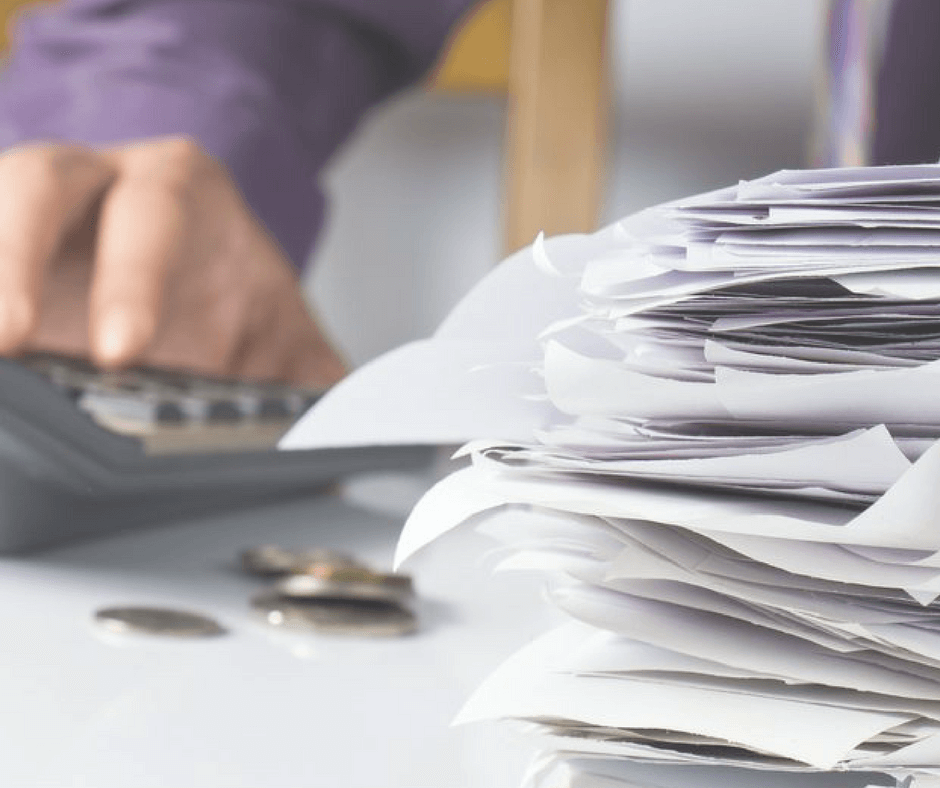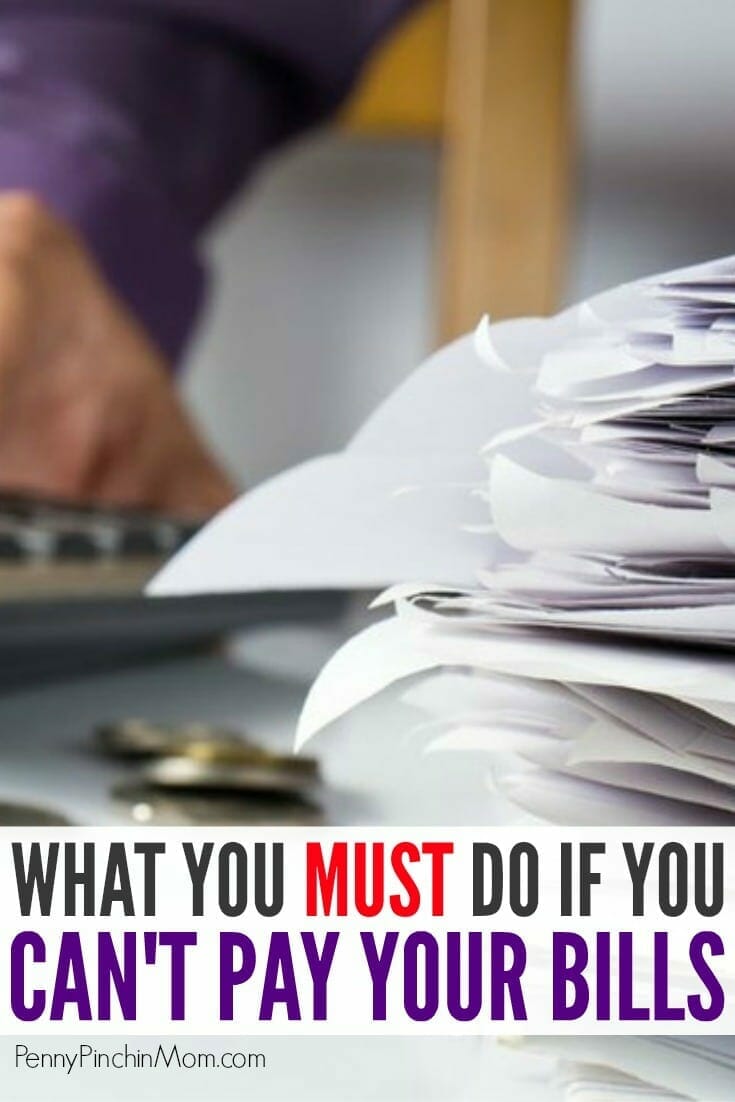Many of us have been there. Too much month and not enough money. If you can’t afford to pay your bills, it can be stressful.
The reasons you are behind and can’t pay your bills might be due to a loss of income, an emergency that cost more than you anticipated, a budget that missed a category or two. Regardless of your situation, you still need to pay your bills. You can’t escape it.
It can be a very stressful time when you find yourself in this situation. The best thing to do is to fix things and make them better. Here are some simple tips you can follow to get back on track.
Read more:
- How to Create a Budget If You are Broke
- The Categories You Must Have in Your Budget
- How to Cut Your Budget When There is Nothing Left to Cut
- My Secret Method for Sticking to a Budget
WHAT TO DO IF YOU CAN’T PAY YOUR BILLS THIS MONTH
1. Face the reality of what you owe
When you can’t pay your bills, you feel overwhelmed. It may seem that the simplest solution would be to climb into your bed, cover up and go to sleep (hoping it will all go away). Sadly, that will not work. The bills will be waiting for you…and will get worse.
Instead of hiding from it, face it head-on. Take responsibility and do what you can to pay the bills. If you can’t cover the expense, you certainly can not afford late fees, or even worse, a hit to your credit report. Doing so will just make matters worse. Own it and vow to change it.
2. Review your bills so you know exactly how much you owe this month
Gather up all of your bills. Then, make a list of all of your accounts and the amounts you owe. You can do this old school with paper and pencil, or you can go high tech and create a spreadsheet.
Make sure you include past due amounts and late fees. Your bills might consist of utilities, cell phone, mortgage, credit cards, student loans, insurance, etc. Don’t forget anything.
Once you see who you owe, add up the amount that you owe. Now, you have a better picture of exactly what you owe and who you need to pay.
3. Make a phone call (or two)
When you are behind on your bills, you have to decide who to pay first. But, don’t just decide on your own. Instead, call each company to see who might be more willing to work with you. Make sure you talk to them before your bill is due.
Make sure you are honest and do not lie. Let the creditor know your situation and ask them if they might be able to offer either an extension or maybe another helpful idea.
Most will want to help as they understand that things happen and there are times when you can’t cover your bill. In most instances, they would rather help you out than lose you as a customer.
Once you have the new terms, make sure it is all in writing. It could be via a follow-up email or something sent to you by regular mail.
4. Find ways to make more money
The honest truth is if you can’t pay your bills because you don’t make enough money, you may need to find a way to bring in more income. Take a look around the house to see if there are things you can sell. It might be an old piece of furniture, baby items or even toys.
You might also see if there is a way you can make additional cash. It might mean a second job or even offering your services. If you are a teacher, maybe you could do tutoring. You might consider lawn work, baking, babysitting – the ideas are endless.
Read More: 75+ Ways to Make Money
5. Pay for the essentials first
If you’ve done all of the above and find that you are still unable to cover your expenses, then you will need to determine who you will pay right now and which bills will have to wait. The most important bills to pay first should be your utilities such as electric, water, and gas. These are needs and are necessary to live.
Once you pay those bills, the next ones you need to consider are the debts which are secured. These include vehicle loans and your mortgage. Since there is collateral on these loans, it means they can take them back for non-payment. To avoid repossession or foreclosure, it is critical that these get paid.
The final bills to pay are items such as your student loans, credit cards, and other debts. Sure, not paying these on time may hurt your credit, but there are things you can always do later to improve your credit score.
By paying your bills in order of importance, you will make sure your needs are met first, which is most important.
6. Create a NEW budget plan
Chance you have hated being in this situation and want to do what you can to prevent it from happening again. You need a plan. And, by plan I mean — you need a budget. Not just a random piece of paper with a list of bills, but an actual written budget. Your budget will account for every penny you make, and you will give it a job.
Learn more about How to Create a Workable Budget.
Following these tips will not only get the important bills paid but get you back on track to ensure it doesn’t happen again. Remember that not getting your bills paid is not the worst thing that can happen to you. Sure, it feels like it at that moment, but in all honesty, there are worse things that could happen to you.
Know that you are not alone and that you can take the necessary steps to prevent it from happening again. With these ideas, you can gain control of your finances.

